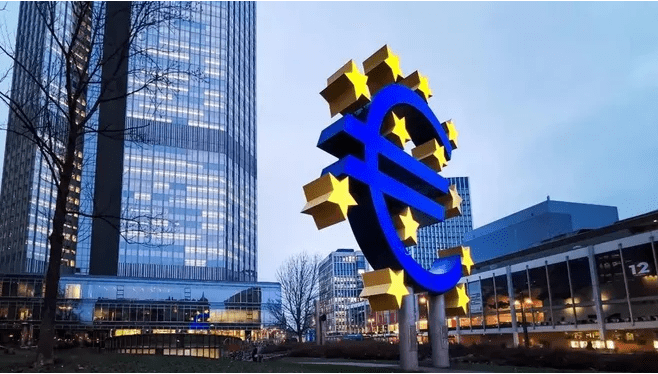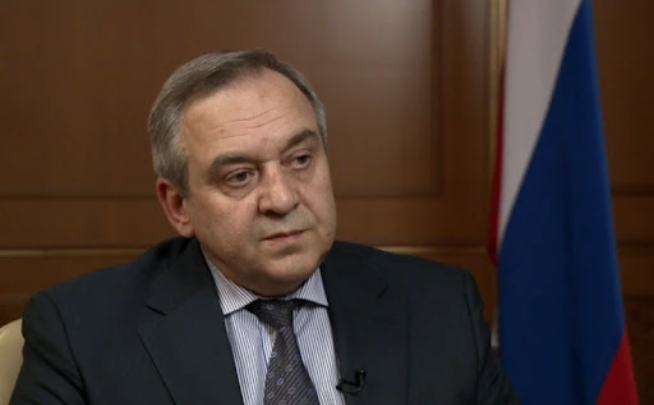The EU, which now sees a Russian gas cut-off as a ‘possible scenario’, has demanded ‘voluntary’ savings steps from its members. If it is not enough, ‘forced’ savings may come. How much the ECB will raise interest rates in the shadow of the gas recession is a development that will directly affect global markets and the parity.
According to European Commission President Ursula von der Leyen, it is now a “possible scenario” that Russia could turn off the gas taps completely. As the European Union embarks on extraordinary austerity measures to address an acute gas bottleneck, global markets are focused on the European Central Bank’s interest rate decision to be announced today.
- The discovery that excited the world raises new questions! Van Gogh’s life full of secrets
- US launches Mineral Supply Partnership with several countries for clean energy technologies
- It’s the accumulation, after all: Trump is hurt by the hearings from January 6
Capital Economics: Europe is heading for recession
While the dollar index continued to move in the 106-107 band on Wednesday, the euro/dollar parity moved slightly away from parity and rose above 1.02 on Tuesday with the expectation that the ECB would raise interest rates by 50 bps instead of 25. However, if the ECB increases liquidity conditions by only 25 bps, taking into account the economies with the possibility of recession, it may bring new declines in the pair. In addition, consumer confidence fell to a historic low of minus 27 in July. There are analysts who do not find even the ECB’s 50 bps hike “hawkish enough”, but the fact that interest rates are positive after 8 years is seen as a step that will support the Euro. “Europe will enter a mild recession,” Jennifer McKeown, Director of Global Economics Services at Capital Economics and former BoE economist, told Bloomberg, predicting that the ECB will eventually raise rates to 2 percent despite the possibility of a recession. The BoE, on the other hand, will need to gear up tightening for the UK, which will technically enter a recession, McKeown said.
Bonds eye ECB’s ‘fragmentation’ plan
The political crisis in Italy continues after the resignation of Prime Minister Mario Draghi. Former ECB President Draghi, nicknamed ‘Super Mario’, whose resignation was rejected, indicated that he could remain in office, but emphasized that he needed the support of all parties in the coalition for this. The ECB’s ‘fragmentation’ plan, in which the ECB may pursue a different monetary policy towards the peripheral economies of the Eurozone such as Italy, is also a factor that markets will closely monitor. On Wednesday, when the fragmentation plan was eagerly awaited, the yield on German 10-year bonds was 1.217 percent, while the yield on Italian 10-year bonds was 3.398 percent.
Berenberg: Germany has already entered recession
Berenberg Chief Economist Holger Schmieding said that Germany is likely to have already entered recession. Germany, where the Producer Price Index fell slightly to 32.7 percent year-on-year, contrary to expectations, is seen as one of the most likely economies to enter recession as it is one of the most dependent on Russian gas. However, Berenberg believes that recession has become the base scenario not only for Germany but also for Europe and the US.
EU asks members for ‘voluntary’ gas savings, ‘mandatory’ if necessary
The EU Commission, which is considering austerity measures due to a major shortage of natural gas supplies from Russia, has proposed that member states reduce their gas consumption now in order to store enough gas for the winter months. “I know we are asking a lot of the EU, but we have to do this,” Commission President Ursula von der Leyen said, adding that if action is not taken now, the Union could face a much more severe gas crisis in the winter of 2023/24. The Commission has asked member states to voluntarily reduce their gas consumption by 15 percent next month, which it sees as a voluntary demand-side measure for now. But if necessary, the measures could become ‘mandatory’ in an emergency. The Commission’s proposal needs the approval of the 27 EU member states before it can be implemented. Many simple demand-side measures, such as turning off shop lights at night and using air conditioners at temperatures higher than 20 degrees Celsius, have already been highlighted by the EU’s Climate Commissioner.
UK may also gear up for tightening, 50bps on the table
The Bank of England (BoE), whose inflation once again hit a historic record in June, will consider raising interest rates by 50 basis points at its August meeting. CPI in the UK climbed to a new 40-year high of 9.4 percent in June from 9.1 percent in May due to rising fuel and food prices. The expectation was 9.3 percent. The increase in producer prices also climbed to 16.5 percent, above expectations (16 percent). BoE Governor Andrew Bailey said that the Monetary Policy Committee will discuss raising the interest rate by 50 basis points at its meeting in August within the framework of accelerating the fight against inflation. Making his annual speech at Mansion House, Bailey stated that the BoE could reduce the amount of government bonds it holds by 50-100 billion pounds in a 1-year period. Bailey also emphasized that the BoE could vote on a decision to actively sell government bonds in its portfolio at the September meeting at the earliest. BoE purchased 875 billion pounds sterling worth of government bonds within the framework of the monetary easing program. It stopped reinvesting the principal payments of these bonds in February and since then the amount of government bonds in the portfolio has decreased to 847 billion pounds. In September, the bond portfolio is expected to fall to £838 billion. About GBP 35 billion worth of bonds will mature next year. China, on the other hand, kept interest rates unchanged in line with expectations and kept the 1-year loan prime rate (LPR) at 3.70 percent and the 5-year interest rate at 4.45 percent. The bank, which last cut interest rates in January, has not changed its benchmark 1-year medium-term credit facility interest rate since January.





